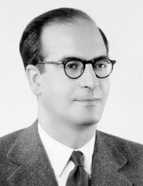

JBM rejected history as a system, history as a self-sustaining structure, but he could make use of long-term criteria, in dialogue with factors for change. So he understood the historiographical position adopted by Braudel, which Marxism tried, unsuccessfully, to make entirely its own by insisting on the physical and material world as determining factors, and by confusing the definition of economic dynamism with that of capitalism. To this merging Braudel counterposed the importance of human choice and the economic world as a human artefact. And confronting a mathematical structuralism, JBM emphasized the importance of smaller phenomena in history and ability to form a personal judgement. But one could also reap many other references from his magisterial classes, with an appreciation of the contributions of Oswald Spengler, Lewis Mumford, Vilfredo Pareto, George Kennan and Frédéric Mauro. It is from this group, to which once again we should add Max Weber, that are derived the notable sociological and structural references in his work, which accompany his concerns with characterizing political phenomena through the study of the formation and substitution of elites in Portuguese history.
In his book, Problems of Industry in Portugal in the Eighteenth Century, previously mentioned, he had studied the “conditions of Portuguese industrial infrastructure in the eighteenth century”, and cited his researches into the Port of Lisbon, which should in his view continue, in order both to elucidate its international role and to explain its importance to Portugal in relation to its agricultural and industrial structure. JBM aims to explain the conditions of modern Portugal in terms of its own problems and themes, its ways of adjusting to its position by way of industrial, agricultural and commercial practices, by examining production and distribution. Having made a survey of Portuguese industry, he could affirm that the introduction of manufacturing had been done to give “a new shape to the kingdom’s factories”, and not to create them. It remained to be seen if the traditional ways of Portuguese industry, based on small workshops and homeworking, continued to be competitive. The publication of Pragmáticas confirmed a belief in this possibility. And the truth is that traditional Portuguese industry resisted throughout the eighteenth century. It was in this light he studied the “true” significance of the Methuen Treaty, and what Napoleon’s Continental Blockade meant. It became clear that Portuguese industry would collapse at the start of the nineteenth century, and that the Revolution of 1820 did not correspond to any industrial surge or development, or any kind of economic relaxation.
